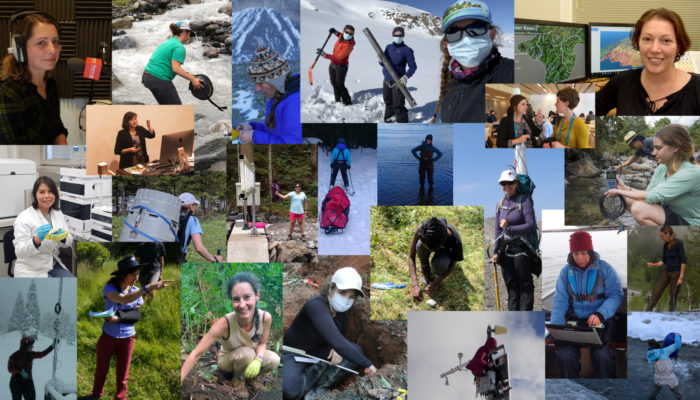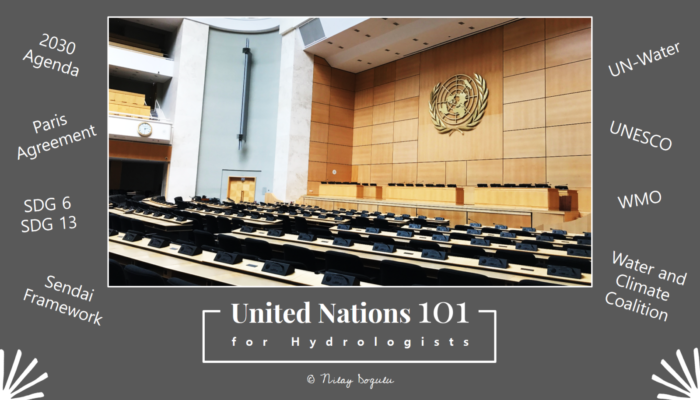Do you know when the Hydrological Sciences Division had their first Early Career Scientist representative? Or who the division president was in 2016? Check the answers below, where we list these and other historical highlights over almost 20 years of the Hydrological Sciences (HS) Division. Overall, the most striking fact is certainly the steady growth and diversification of the community and the ...[Read More]
International Day of Women & Girls in Science

Today is the 8th International Day of Women and Girls in Science. We use the opportunity to simply show you who we are and how we work. How do you picture a scientist? The GeoLog publishes a selection of interviews with women scientists. Links to other related EGU Blog entries: 2021 GFGD Blog on the International Day of Women and Girls in Science 2020 HS Blog on How Do You Pic ...[Read More]
United Nations 101 for Hydrologists
Did you feel the roar of water during the 2021 United Nations (UN) Climate Change Conference (aka COP 26) hosted at the Scottish Lowlands? It was the first time that the venue had a Water Pavilion in the COP history since 1995. The hashtags #Water4Climate with #COP26 were extremely popular in the social media channels. With the elevated status of water for climate adaptation, hydrological sciences ...[Read More]
2021 Recap of the HS Blog
It’s the end of 2021! For our HS Blog, it is time to recap what we have published during the year (in case you want to go further back in time, you can also check the 2019 and the 2020 recaps). In 2021, we published 23 posts, covering a large range of topics, as you can see below. We warmly thank all the authors and contributors that made it possible. We hope you have enjoyed reading their c ...[Read More]



